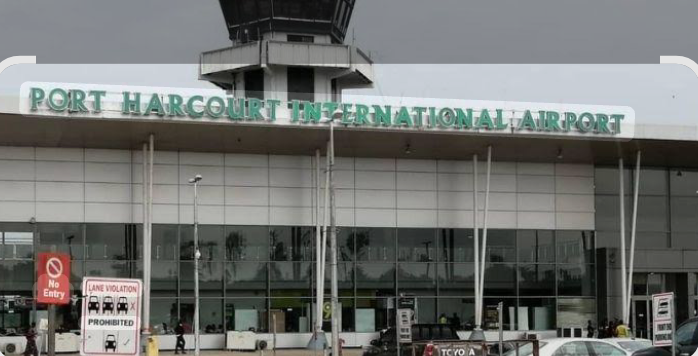The Federal Government has approved the concession of Port Harcourt International Airport to private investors as part of sweeping reforms aimed at improving efficiency and reducing losses in Nigeria’s aviation sector.
The Minister of Aviation and Aerospace Development, Festus Keyamo, SAN, announced this on Wednesday after presenting eight memos at the Federal Executive Council (FEC) meeting presided over by President Bola Ahmed Tinubu in Abuja.
According to Keyamo, the FEC gave its nod for the full business case of the Port Harcourt Airport concession, marking a significant step in the ministry’s broader plan to bring private sector expertise into the management of underperforming airports.
“We have two major airports now that we have approvals in terms of the business case to begin to finalise with private investors. Before we came in, Port Harcourt was a no-go area — almost all the investors shunned it. But under this administration, more than six companies expressed interest. Today, we have the business case approved”, he said.
Keyamo emphasized that the decision was driven by the need to stop the recurring financial losses recorded by many airports, noting that revenues from Lagos, Abuja, and Kano airports have long been used to subsidize smaller ones.
According to him: “We are running our airports at a loss. We cannot continue to waste government money. The Minister of Finance and Coordinating Minister of the Economy has been encouraging us to bring in investors to run these airports.”
Amid concerns from aviation unions over the concession plans, the minister reassured workers that no jobs would be lost.
“This is a message to the unions — nobody will lose his job as a result of these concessions. I am pro-union and pro-worker, but the unions will not dictate government policy. We will engage them and ensure their interests are protected”, he stressed.
Keyamo also disclosed several other key approvals granted by the council, including:
Maintenance and Support Contracts for airport management solutions at the five major international airports — Lagos, Abuja, Kano, Port Harcourt, and Enugu.
Procurement and Installation of Advanced Tertiary Power Systems and 14 VHF Remote Stations by the Nigerian Airspace Management Agency (NAMA) to strengthen navigational safety nationwide.
Acquisition of 15 Firefighting and Rescue Vehicles to meet International Civil Aviation Organization (ICAO) safety standards.
Construction of a Permanent Headquarters for NAMA in Abuja, ending years of reliance on rented facilities.
Exclusion of Airport Authority Properties from Sale to private individuals, reversing previous efforts to dispose of staff quarters and technical facilities within airport zones.
Introduction of Biometric Verification Systems at airports, integrating passengers’ National Identification Numbers (NIN) to enhance security and prevent identity fraud.
Lighting and Infrastructure Upgrades to enable night operations at select domestic airports, extending flight schedules and supporting airline profitability.
The Minister of Aviation and Aerospace Development, Festus Keyamo, SAN, announced this on Wednesday after presenting eight memos at the Federal Executive Council (FEC) meeting presided over by President Bola Ahmed Tinubu in Abuja.
According to Keyamo, the FEC gave its nod for the full business case of the Port Harcourt Airport concession, marking a significant step in the ministry’s broader plan to bring private sector expertise into the management of underperforming airports.
“We have two major airports now that we have approvals in terms of the business case to begin to finalise with private investors. Before we came in, Port Harcourt was a no-go area — almost all the investors shunned it. But under this administration, more than six companies expressed interest. Today, we have the business case approved”, he said.
Keyamo emphasized that the decision was driven by the need to stop the recurring financial losses recorded by many airports, noting that revenues from Lagos, Abuja, and Kano airports have long been used to subsidize smaller ones.
According to him: “We are running our airports at a loss. We cannot continue to waste government money. The Minister of Finance and Coordinating Minister of the Economy has been encouraging us to bring in investors to run these airports.”
Amid concerns from aviation unions over the concession plans, the minister reassured workers that no jobs would be lost.
“This is a message to the unions — nobody will lose his job as a result of these concessions. I am pro-union and pro-worker, but the unions will not dictate government policy. We will engage them and ensure their interests are protected”, he stressed.
Keyamo also disclosed several other key approvals granted by the council, including:
Maintenance and Support Contracts for airport management solutions at the five major international airports — Lagos, Abuja, Kano, Port Harcourt, and Enugu.
Procurement and Installation of Advanced Tertiary Power Systems and 14 VHF Remote Stations by the Nigerian Airspace Management Agency (NAMA) to strengthen navigational safety nationwide.
Acquisition of 15 Firefighting and Rescue Vehicles to meet International Civil Aviation Organization (ICAO) safety standards.
Construction of a Permanent Headquarters for NAMA in Abuja, ending years of reliance on rented facilities.
Exclusion of Airport Authority Properties from Sale to private individuals, reversing previous efforts to dispose of staff quarters and technical facilities within airport zones.
Introduction of Biometric Verification Systems at airports, integrating passengers’ National Identification Numbers (NIN) to enhance security and prevent identity fraud.
Lighting and Infrastructure Upgrades to enable night operations at select domestic airports, extending flight schedules and supporting airline profitability.









